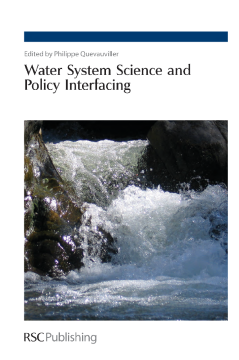
Additional Information
Book Details
Abstract
Recent discussions among scientists and policy-makers have highlighted that knowledge generated by many research and demonstration projects is not reaching policymakers in an efficient way. Conversely, the consideration of research results by the policy making community is not straightforward, and difficulties arise in integrating the latest research developments in legislation. The difficulty is enhanced by the fact that the policy-making community is not defining its role as "client" sufficiently well and the dialogue and communication channels are far from ideal to ensure an efficient flow of information. An increasing number of experts consider that improvements could be achieved through the development of a "science-policy interface" so that R&D results are synthesised in a way to efficiently feed policy implementation and that short, medium and long term research needs may be identified. This book examines the issue of integrating science into policy, with an emphasis on water system knowledge and related policies. An important feature of the book is the discussion of science-policy interfacing needs, illustrated by examples from authors from different countries in relation to water system management. This publication is timely in that the science-policy interfacing is now identified as a key challenge worldwide with regard to integrated water resource management, and therefore the book will be of great interest to scientists, water managers and stakeholders. Readers will also benefit from a better understanding of the needs, benefits and drawbacks of an established transfer mechanism of scientific outputs to policies.
Philippe QUEVAUVILLER is a member of the Water & Marine Unit of the EC Environment Directorate-General where he is responsible for the development and implementation of a new Groundwater Directive which will complement the existing water policy framework. He has worked as a researcher in marine geochemistry for over 20 years during which he has published more than 200 papers in the international literature and several books linked to environmental quality measurements. He is also a part-time professor at the K.U. Leuven teaching "water quality and treatment".
